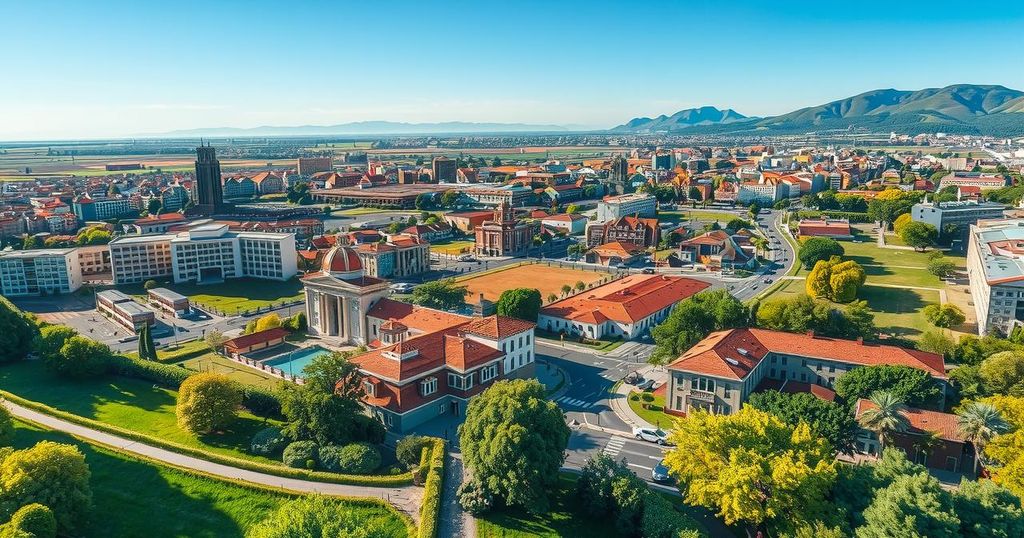José Mujica: The Compelling Legacy of Uruguay’s Beloved President
José Mujica, the former guerrilla and president of Uruguay, died on May 13. Known for his compelling story and polarizing legacy, he connected with both urban and rural citizens. His progressive reforms faced criticism, reflecting a complex political legacy marked by charisma and contradiction. Mujica’s unique approach and authenticity set him apart in the political landscape.
José Mujica, Uruguay’s former guerrilla fighter and beloved president, passed away on May 13. For many outside Uruguay, understanding his impact poses a challenge, as Mujica embodies the very essence of the nation’s complex identity. The country finds itself divided between an urban, socialist culture primarily based in Montevideo, and a rural, individualistic populace that often embraces conservative ideals. This split reflects a historical tension between two worlds, shaping Uruguay’s political landscape for generations.
Mujica’s life story is particularly compelling and often likened to Hollywood narratives. After years of imprisonment due to his role in the Tupamaros, a guerrilla group, he re-entered society and redefined his legacy. He promoted his movement’s transition into a significant political power, ultimately serving as president from 2010. His charismatic style and unfiltered communication connected with everyday people, both in urban centers and rural towns, forming a bond that many politicians seek but seldom achieve.
He fought to project an image of solidarity with everyday Uruguayan citizens, living humbly despite the wealth of his wife, Lucia Topolansky. The tale of him arriving at Paraguay’s Congress on an old Vespa became a symbol of his simple lifestyle. Mujica’s authenticity resonated deeply, leading to the myth of “the world’s poorest president,” a title that grew as he remained true to his origins. Even during high-profile meetings, he would entertain guests in a modest home.
Mujica’s legacy, however, is hotly debated. While he championed social reforms such as abortion rights and same-sex marriage, his administration also left a complicated political footprint. He increased national debt and left a state-funded energy company struggling financially. Critics argue that he failed to prioritize education, a purported focus during his tenure, despite the economic boom seen during those years.
Diminishing the significance of previous governmental discourse, Mujica’s unorthodox communication style often involved rough language. Observers noted a decline in political civility resembling trends seen in the United States, particularly drawing comparisons with Donald Trump. His ability to shift public sentiment was remarkable; this adaptability functioned both as his strength and a source of criticism.
In the final moments of his life, Mujica remained engaged politically. Speaking to voters from his sick bed, his message urged support for his successor, Mr. Yamandú Orsi. Experts suggest this endorsement played a crucial role in Orsi’s electoral success, proving Mujica’s continued influence in Uruguayan politics.
Mujica’s contradictory nature defined his political career, often oscillating between critiques of corporate greed and union ignorance. As a self-identified socialist, he also posed challenges to Stalinist regimes while maintaining friendships with disparate leaders like Fidel Castro and Spain’s former king. His unique ability to tap into the soul of Uruguayan society is unprecedented.
Contemplating whether Mujica could have directed his talents toward more constructive ends is a valid inquiry. Nonetheless, in an era of scripted, image-focused politicians, he stood out as an authentic figure, a distinct presence in Uruguay’s storied history.
José Mujica’s life and presidency represent a fascinating blend of charisma, contradiction, and complexity. His ability to connect with diverse populations cemented him as a political figure unlike any other. Despite major criticisms about his governance and its lasting impacts, there’s no denying the significant cultural footprint he left behind. Ultimately, José Mujica will be remembered as a compelling, if divisive leader, whose legacy continues to shape discussions in Uruguay today.
Original Source: www.eurasiareview.com




Post Comment